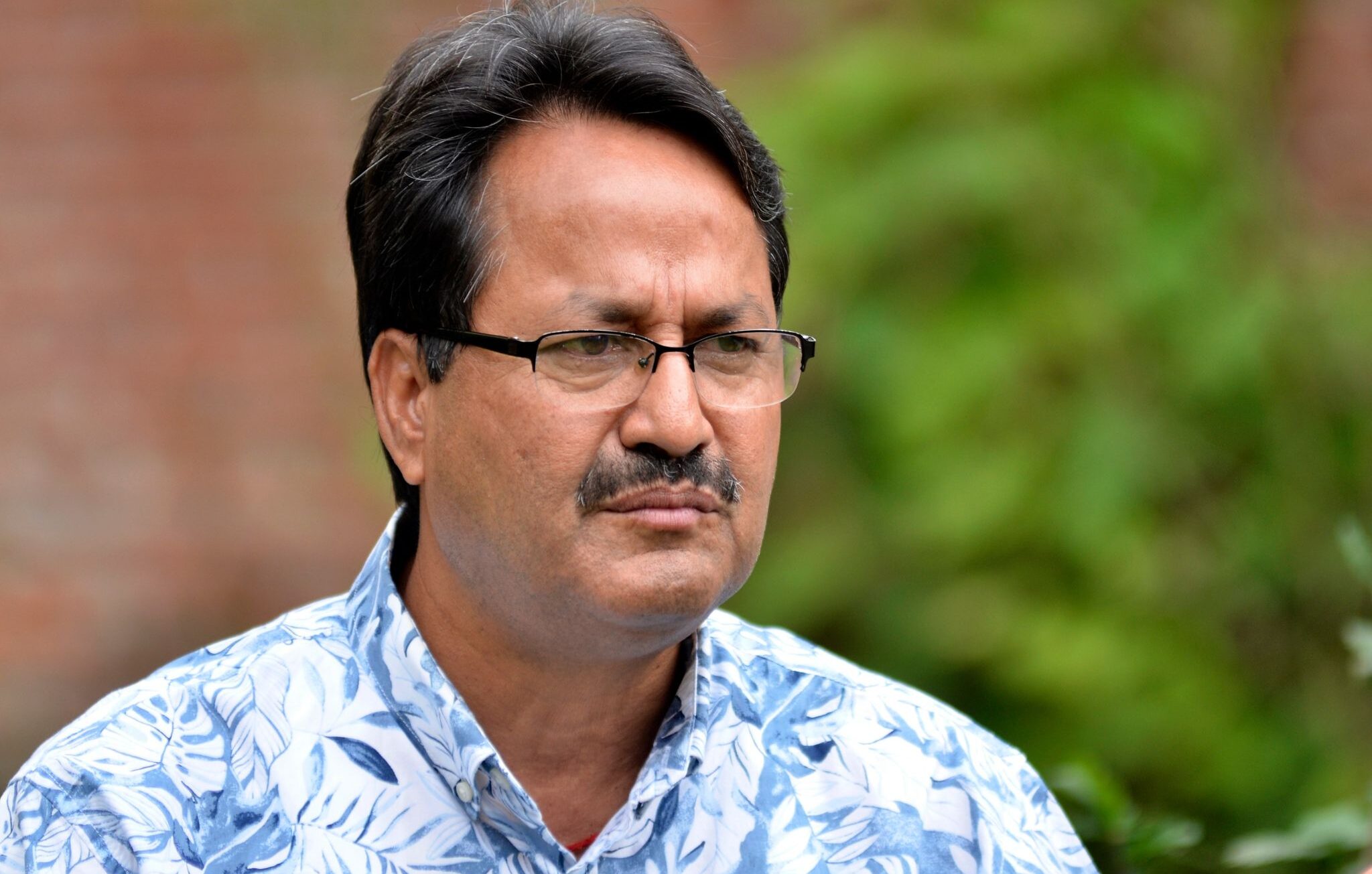
Kathmandu: Prime Minster Pushpa Kamal Dahal ‘Prachanda’ is returned home after wrapping up his four day official visit to India. Bilateral agreements and understanding were reached between Nepal and India after one-to-one dialogue between PM Dahal and his Indian counterpart Narendra Modi and at delegations level. The Government of Nepal has expressed its confidence that the high-level visit would bring the Nepal-India relations to a new height.
Here goes the excepts of an interview Rastriya Samachar Samiti (RSS) special correspondent Ramesh Lamsal took with Minister for Foreign Affairs NP Saud in Indore of Madhya Pradesh, India in connection with the PM’s India visit.
Q. How do you take the PM’s India visit?
A. The visit has advanced the age-old, cordial and close relationships between the two countries. Various agreements and understandings were reached in course of the visit. It has imparted a good impression for mutual development of Nepal and India. A historical agreement was made with India in regard to energy development and power trade. The pact has enhanced the confidence for increasing investment in Nepal from India and other countries. The power produced in Nepal can also be exported to Bangladesh. It would contribute to the greater economic development of Nepal and reduce trade deficit with India. All these matters are positive. The transit agreement has been renewed. Besides this agreement, there are matters related to other entry points. We take this in a positive note.
Q. Has the agreement on power trade imparted a positive message to investors for investment in Nepal?
A. It requires investment amounting to billions of rupees in electricity. No investors are motivated to flow their money unless their market is ascertained. Principally, India has agreed to purchase electricity produced in Nepal. The target is to purchase 10,000 Megawatt electricity within10 years. The Indian side has assured to continue purchasing power within25 years. Both the sides agreed to increase the volume in coming 10 years. India has agreed to allow the use of its grid to export our electricity to Bangladesh. We have also talked with Bangladesh in this matter. Bangladesh is also equally important market for us to sell our electricity. Nepal is potentially in a position to cash in on the opportunity.
Q. It has revealed that Prime Ministers of both the countries also discussed to advance talks on Nepal-India border. What is the progress in this connection?
A. The border related mechanism has long been working in regard to the border. Works on the map are also underway. It seems that both the countries should reach a necessary decision at diplomatic and political level in the areas where consensus is not likely. To this date, Nepal has been highly raising the issue of border problems. Now Indian PM himself noted that India would make the headway to the direction to resolve the border and other affairs. It indicates India is willing to see relationships with Nepal in a different lens. It seems that India is looking forward to advance the friendly relationships between the two countries by averting the persisting disputes.
Q. There requires a concrete commitment from India to advance measures for resolving border problem in a new way. How is this taken?
A. The EPG report is not a dispute. This is a document of moral responsibility. The Eminent Persons Group was formed as per the need of both the countries. The committee submitted the report. We have to go though it before making decisions whether or not to implement it or to review the document through further discussion. We are positive. India has not received it. Now, EPG report and border issue are different. The border issue is sensitive. Nepal too has its concern on it. On the issue, Prime Minister of India Narendra Modi himself has responded positively. We must pursue the way to resolve the problem instead of prolonging it.
Q. There has been an agreement on the construction of an integrated check post at Chandani-Dodhara in Kanchanpur and a concrete bridge over the Mahakali River. You are the people’s representative from the project site. How do you take it?
A. There has been an agreement on the construction of a dry port and an integrated check post at Dodhara. An agreement was also reached to build concrete bridges at Parshuram area in Dadeldhura, and at Jhulaghat in Darchula. We have also taken up the matter of replacing a twine (ropeway) with a suspension bridge over the Mahakali River. On the funding issue, we have made it clear that we are ready to manage fund for the project.
Q. All in all, how has been this India visit?
A. This visit has been a historic in many ways. The transit treaty has been renewed. We have reached a power agreement. It has been ensured that the agreement would be endorsed from the Indian Cabinet in some weeks. A memorandum of understanding having seven charters has been signed. A climate of trust has been increased at the prime-ministerial level
Q. There are reports that an agreement could not take place on the Pancheshwor multipurpose project?
A. It is a known fact that there are some issues related to the Pancheshwor multipurpose project. We wish the project as part of the Mahakali Treaty should advance. For this, it requires a detailed project report (DPR). There has been an agreement on preparing a DPR within three months, and moving ahead by resolving the issue of water allocation.
Comments